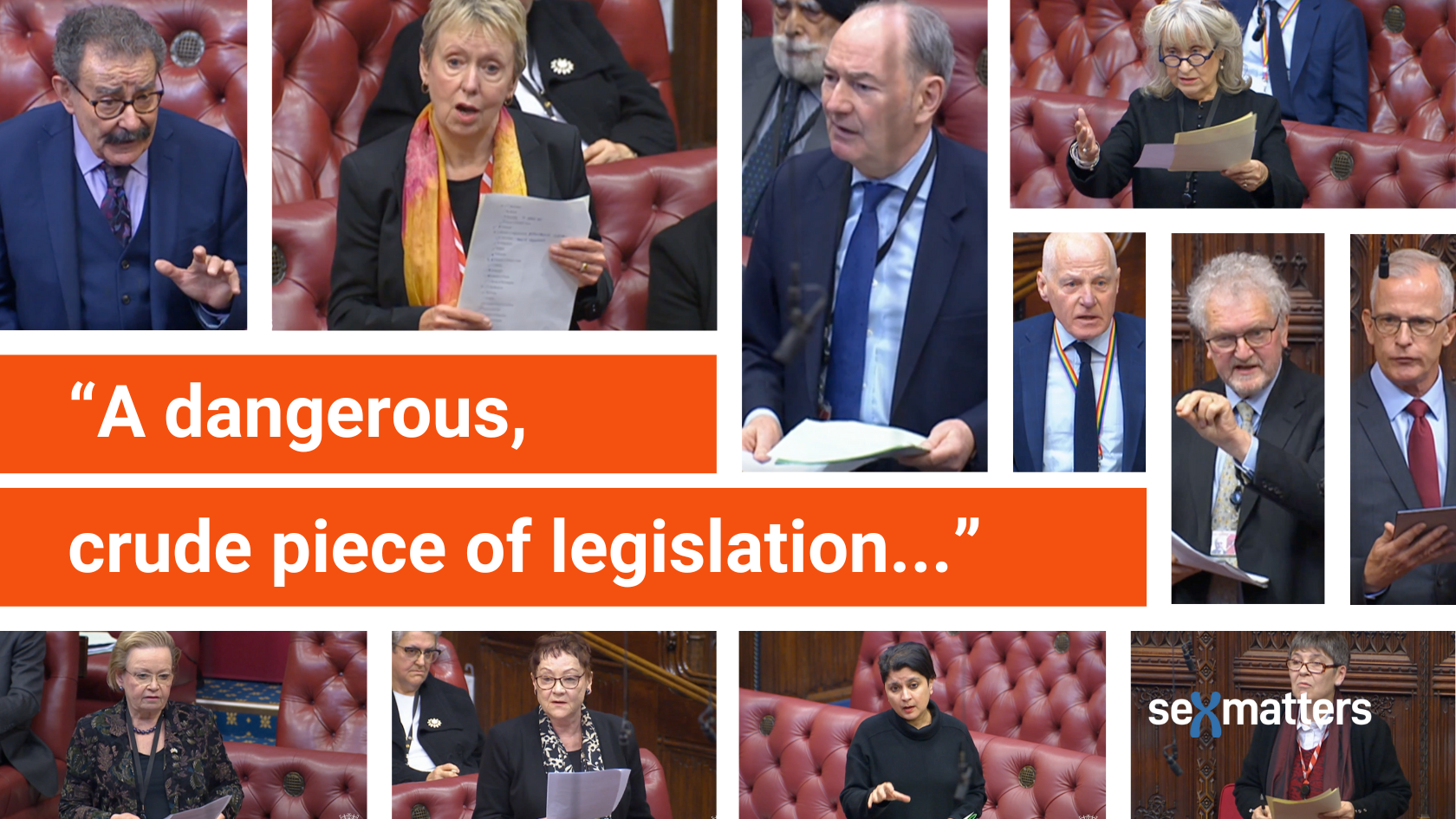Lords debate conversion therapy

On Friday 9th February 2024 Baroness Burt’s Private Member’s Bill proposing a ban on “conversion therapy” was debated in the House of Lords. Twenty-nine peers spoke against it and fifteen in favour. This was the first time some important arguments had been heard in Parliament.
While those in favour presented the proposed new legislation as a way to prevent abuse, or even “torture”, those who spoke against made clear that there is no gap in the existing law – physical and verbal abuse, detaining somebody against their will and assault are already illegal under UK law – and no evidence of conversion therapy happening in the UK. Peers spoke strongly about the risk to parents, teachers, therapists, medical professionals and religious leaders and most of all about the harm to young people from silencing anyone who would not affirm a rush to transition.
We have compiled all the individual speeches as video clips, together with highlights.
Ten to watch
- Lord Forsyth (Conservative) said the Bill had all the characteristics of something written on the back of beer mat after an unruly discussion in a pub and that he had never seen a more badly drafted or dangerous piece of legislation.
- Lord Winston (Labour) talked as a medical doctor about how little is understood about transgenderism. He raised the risk of legislating about a phenomenon where we do not understand the incidence or underlying mechanisms. He called for research, not criminal law.
- Baroness Noakes (Conservative) gave a forensic analysis of the evidence base for “conversion therapy” evidence being a problem and found that it was weak. She argued that the fact that LGBT lobbyists assert that there is a problem does not constitute evidence on which responsible legislators can rely.
- Baroness Ludford (Lib Dem) highlighted that a high proportion of young people who present as struggling with their sex actually turn out to be gay and said that premature gender affirmation could be a new form of gay conversion therapy.
- Baroness Buscombe (Conservative) talked about how she had supported the GRA, but 20 years later “we are in a terrible mess”. She said the Bill risks criminalising parents who try to dissuade their confused adolescent children – who are bombarded with unbelievable, appalling and, frankly, evil social media and peer pressure – from having irreversible medical treatment that can cause lasting harm, including lifelong sterility.
- Baroness Hayter (Labour) talked about the risk of encouraging early transition, highlighting that puberty blockers are the same drug used for chemical castration and that the Bill risks criminalising any psychiatrist, therapist, teacher, doctor, or perhaps parent or church minister who seeks to engage with that young person and test their request to transition.
- Baroness Eaton (Conservative) told the stories of Keira Bell and several other detransitioners.
- Lord Moore (Conservative) said attempts at banning so-called conversion therapy risk becoming the mirror image of Section 28: the lack of proper evidence of a wide and deep problem; an attack on free-speech rights, failure to use existing laws to find a remedy, if remedy is needed; inattention to how the Act would work in practice; the tendency to use legislation to make an empty moral gesture rather than a useful difference.
- Lord Young (Labour) called gender ideology a cult, invading public institutions. He highlighted the accusations of transphobia faced by women who challenge the ideology and recognised the courage of JK Rowling and Baroness Kishwer Falkner.
- The Earl of Leicester (Conservative) said that transitioning children is the new conversion therapy. The argument that puberty blockers are reversible is a complete lie: they set children on a pathway to further steps that have indisputably irreversible consequences. He highlighted the Cass review and data that demonstrates that almost all children who are put on puberty blockers go on to sex hormone treatment.
One thing that was particularly interesting in the debate was how weak the examples given by proponents of the Bill were about of the kind of thing that should be criminalised.
- Baroness Hunt said that the offence would involve active attempts by those in a position of power to suppress and change a person’s identity by force but gave no specific examples.
- Baroness Chakrabarti talked about a report in The Sunday Times by a journalist who had undergone consensual talking therapy. (Lord Robathan said that this consensual talking was not “conversion”.)
- Baroness Kennedy talked about the experience of Jayne Ozanne as “the most terrible form of conversion therapy“. These were all consensual prayer and talking which Ozanne had sought out.
- Lord Cashman evoked barbaric interventions using chemicals, electric shocks and brain surgeries but recognised that these torturous practices are historical relics.
- Earl Russell referenced a government survey which claimed that 2.4% of respondents had undergone conversion therapy and 5% had been offered it, based on an answer to a vague question among a self-selected group (Baroness Noakes had already critiqued this).
- Baroness Brinton gave an example that she said was conversion therapy, telling the story of “Mr B” who had severe depression and was suicidal, and who saw a psychiatrist who did not refer them for gender transition but instead prescribed anti-depressants.
So on one side were the huge risks of criminalising any kind of talking therapy for gender-distressed children and possibly any kind of conversation not instantly affirming a trans identity, even within a family. On the other, a vacuum: no gaps identified in existing law and no compelling evidence that conversion therapy is even happening. (In fact, many peers agreed with our view that the real modern conversion therapy is persuading gender-distressed children that they should change their bodies with medication and surgery.)
Read the official transcript of everything that was said, watch the video of the whole debate, or catch up on the highlights with our summary:
You can also find our parliamentary briefings, updates and other relevant resources under the tag conversion therapy.
